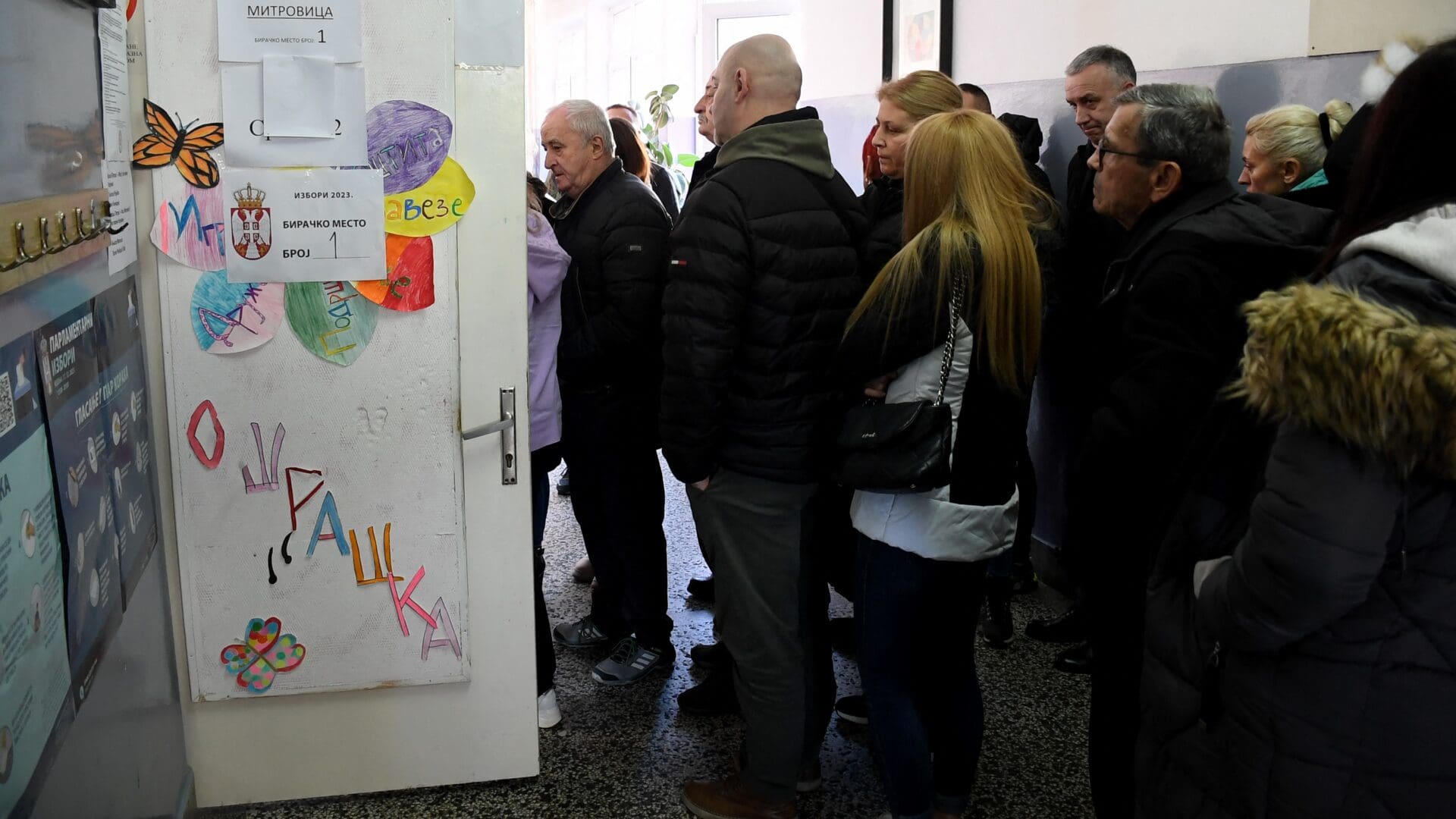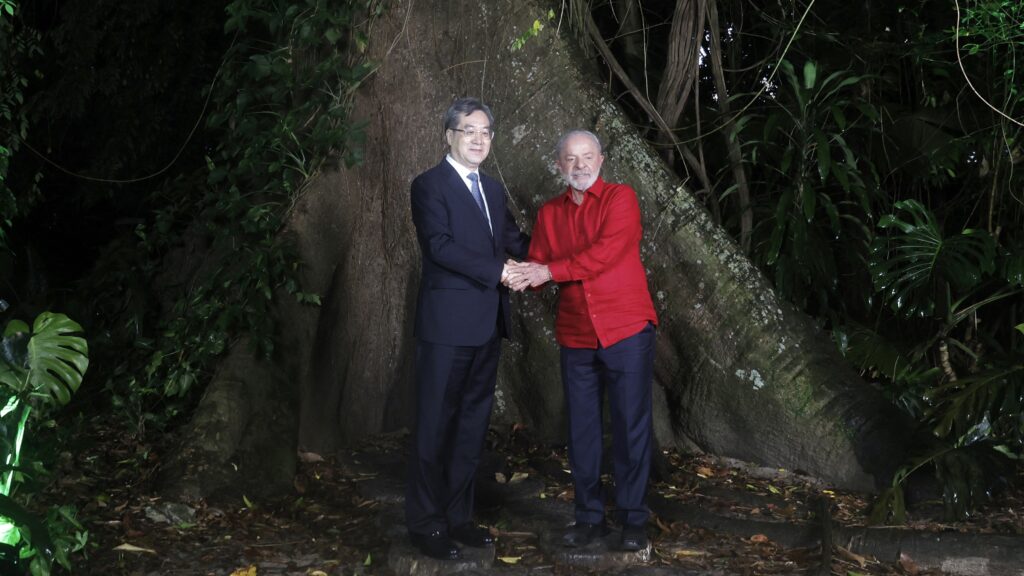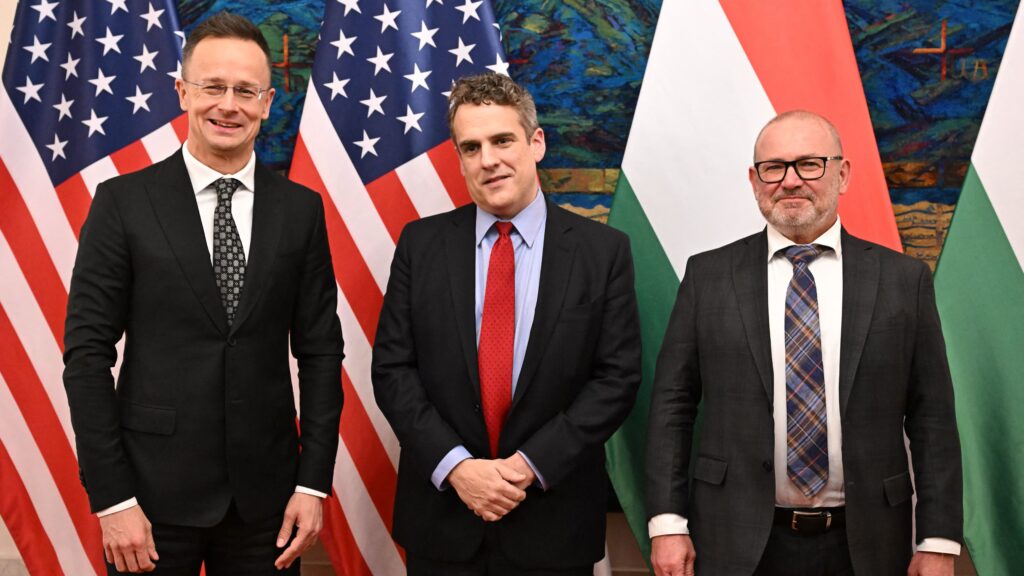So long as President Aleksandar Vučić can maintain Serbia’s current foreign policy orientation, he will be able to hold onto power.
When it comes to Serbian politics, it is fair to say that the more things change, the more they stay the same. Consider the country’s trend of snap elections: since the reintroduction of multi-party democracy in 1990, the country has held ten early elections, with four of them occurring under the ruling Serbian Progressive Party (SNS), which came to power in 2012. Yet despite this trend, the country’s politics demonstrate a certain consistency.
The country’s most recent early elections, held on December 17, are a clear example of this. Serbian President Aleksandar Vučić, until recently the president of the SNS but still widely regarded as its shadow leader, declared that ‘there will be no other elections until 2027.’ Given this, he explained that voters would ‘determine the country’s fate on December 17.’
The results? SNS’ coalition claimed a sweeping victory, comfortably winning around 48 percent of the national vote and giving it a commanding majority in the nation’s parliament. Vučić and SNS’ continued reign, already a decade long, is seemingly assured. In Belgrade, the nation’s capital and a key political battleground, the margin of victory was much tighter: the SNS secured around 40 percent of the vote while Serbia Against Violence (SPN), the main opposition bloc, secured around 35 per cent.
Yet this was not the glittering triumph that Vučić, the SNS, and its coalition partners would have preferred. Belgrade, for instance, was originally expected to be won by the opposition, reflecting the SNS’ decreasing popularity over recent years. Consider that the 2020 elections, which were pointedly boycotted by the country’s opposition, saw the SNS receive 63 percent of the vote. In the 2022 elections, SNS’ coalition secured a mere 44 percent. Given this downward trend, the SNS’ reversal of fortune strikes many as particularly convenient.
The country’s opposition is beside itself, crying fraud, vote-rigging, and demanding the annulment of the Belgrade election. The OSCE’s Office for Democratic Institutions and Human Rights (ODIHR), reported ‘numerous procedural deficiencies, including inconsistent application of safeguards during voting and counting, frequent instances of overcrowding, breaches in secrecy of the vote, and numerous instances of group voting.’ It also noted in a broader context that ‘several key issues remain outstanding’ in the country’s politics and procedures, ‘including those related to ensuring a level playing field, measures to prevent misuse of public office and state resources, separation between the official functions and campaign activities, and effective mechanisms to prevent intimidation and pressure on voters, including vote buying.’
Yet truthfully, it is unlikely that these results will be overturned for a simple reason:
Vučić is tacitly supported by all major powers that have interests in the Balkans:
the United States, the European Union, Russia, and China.
Under Vučić’s leadership, Serbia has navigated a unique path in international relations, especially in its balancing act between Russia and the West. Despite officially being a candidate for EU membership since 2014, Serbia has also maintained its warm relations with Moscow. This dichotomy is likely to persist, as Vučić’s government has shown skill in maintaining this balance despite various challenges.
The matter of Kosovo is a strong instance of this. Vučić’s government has signed and implemented almost every aspect of the Brussels Agreement, which deals with the normalization of diplomatic ties between Belgrade and Pristina. Likewise, Vučić has done similar regarding the Washington Agreement, which concerns economic normalization between the two states. Earlier this year, Vučić publicly indicated before the election that he would implement the European Union’s proposal on the further normalization of ties, even though this would implicitly recognize Kosovo’s unilateral 2008 declaration of independence. Contrast this with the country’s opposition. The right-wing opposition parties are firmly opposed to recognizing Kosovo. The SPN was split on the question, with some parties in support of normalization and some opposed. The overall picture of where the country’s opposition stands on the matter of Kosovo is thus complex and not amenable to official policy from Washington and Brussels.
For all the major powers, especially Western ones, the question is simple:
is disputing Vučić’s win worth rocking the Balkan boat? The answer, at this time, appears to be a rather clear ‘no.’
One can already tell where the wind is blowing based on the United States’ official reaction: U.S. State Department spokesman Matthew Miller stated that Washington ‘welcome[s] the opportunity to continue working with Serbia’s next government to strengthen democratic governance and rule of law, and advance regional stability,’ adding that the Department is ‘reviewing [the ODIHR’s finding] and I wouldn’t want to comment while that review is ongoing.’
In any case, Serbia’s geopolitical destiny seems preordained. Encircled by NATO and EU nations and deeply intertwined economically with Europe, Serbia is experiencing a constant drift toward the West while remaining nominally neutral. It is his ability to facilitate this complex and domestically controversial process that makes Vučić so valued by Washington and Brussels.
For instance, in a poll conducted this past summer, 77 percent of respondents indicated that they would not support Serbia’s entry into the European Union if the condition was recognition of Kosovo’s independence. Moreover, 38.4 percent of respondents indicated that they were either unaware or had no opinion on the plan for the normalization of relations between Serbia and Kosovo, and a whopping 59.2 percent thought that voters should have the opportunity to express their stance on the matter in a national referendum. That Vučić is effective at working under the radar to advance a foreign policy that clashes with popular domestic sentiment is the primary reason why many of his other, more questionable domestic policies are overlooked by the West.
It is thus likely that, so long as Vučić and SNS can maintain Serbia on this orientation, he will be able to hold onto power amidst the shifting waters of Balkan politics.
The author would like to thank Stefan Antić for his assistance in writing this article.







